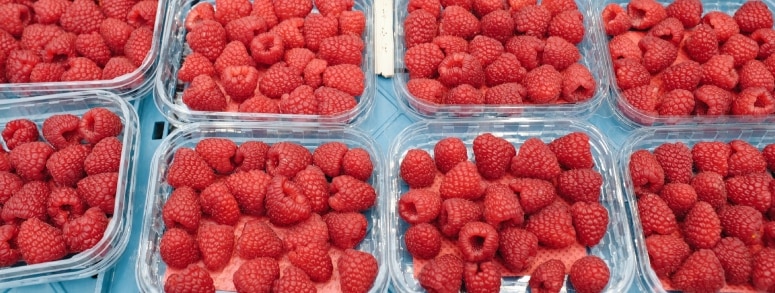The role of packaging and plastics in sustainable food production

World Environment Day is a worldwide event observed each year on 5 June. It serves as a reminder of the vast environmental challenges we face as a society, while also highlighting our collective responsibility to make positive change. It was also the first ever Digital World Environment Day, with online events replacing traditional celebrations due to the coronavirus pandemic.
Food manufacturers, producers and retailers should pay special attention. The food industry has an urgent role to play in limiting the impact of climate change - most notably when it comes to finding the balance between food waste and plastic use.
As consumer demand for responsibly produced food rises, the sustainability of plastic packaging has been challenged. However, plastic plays an important role in preventing food from becoming waste; protecting it during long journeys, increasing shelf life and helping consumers see exactly what they’re buying.
While the shift away from convenience packaging and single-use plastics is very much needed, it’s not a game of absolutes. What’s more, behavioural changes from buyers, including consuming less, recycling more and opting to buy locally and seasonally, are vital.
But it’s not up to consumers alone to take responsibility for reducing food packaging’s impact on the environment. Businesses must step up to build a more sustainable food system for everyone and help tackle climate change through their efforts. Not sure where to start? Here’s our advice…
The first step is to assess your company’s current impact. From here, you can put systems in place to reduce waste. This could include eliminating unnecessary packaging and reviewing the environmental performance of your suppliers, as well as introducing more sustainable materials.
Delivery and shipping models should also be addressed in this process, including any adjustments made in reaction to the global coronavirus response.
You can use ISO 14001 to develop and put in place a waste reduction plan for your organization. The standard supports environmental best practice, helping you find ways to reduce waste and rethink your packaging, while benefiting from cost savings.
You’ll also be able to demonstrate your sustainable credentials to consumers and win their loyalty and trust, potentially securing new business as a result.
Another important set of standards to consider is the ISO 18600 series, which allow organizations to make an environmental assessment of the packaging they develop and use, throughout its lifecycle.
From ISO 18602 (optimization of the packaging system), to ISO 18603 (requirements for packaging to be considered reusable) and ISO 18606 (organic recycling), the series supports innovation and sustainability, while still delivering on food safety and reduced food waste.
Rethinking waste management practices and evaluating packaging lifecycles lays the foundation for food businesses to begin implementing circular economy principles. This means designing out waste and keeping packaging materials in use, through a closed-loop system.
Aim to reduce or eliminate the amount of virgin plastic your packaging uses, or offer consumers packaging designed for return and reuse. You should also consider how you can reduce food waste, which might include making your packaging resealable or offering smaller portion sizes.
BS 8001 offers guidance that’ll help your organization transition from a linear to a circular, and more sustainable, packaging model. In this way, you can contribute to a resource efficient economy - one that is good for both business and the environment.
Finally, it’s important to ensure that your packaging is not only sustainable, but also safe. ISO 22000 sets out the requirements for a food safety management system (FSMS). You can use this standard to drive continuous improvement in your food packaging materials and build a safe food supply chain. Fulfil regulatory requirements as you instil trust in consumers and boost your brand’s sustainable food safety performance.
As climate change continues to accelerate, it’s vital that the food industry starts using packaging materials more effectively. There are many elements to consider, especially because packaging plays such an important role in helping to reduce food waste.
This is an opportunity to turn challenges into opportunities for innovation and growth - and, with the right standards in place, you can assess your impact and make informed decisions that will help achieve a lasting, positive impact on the environment.



